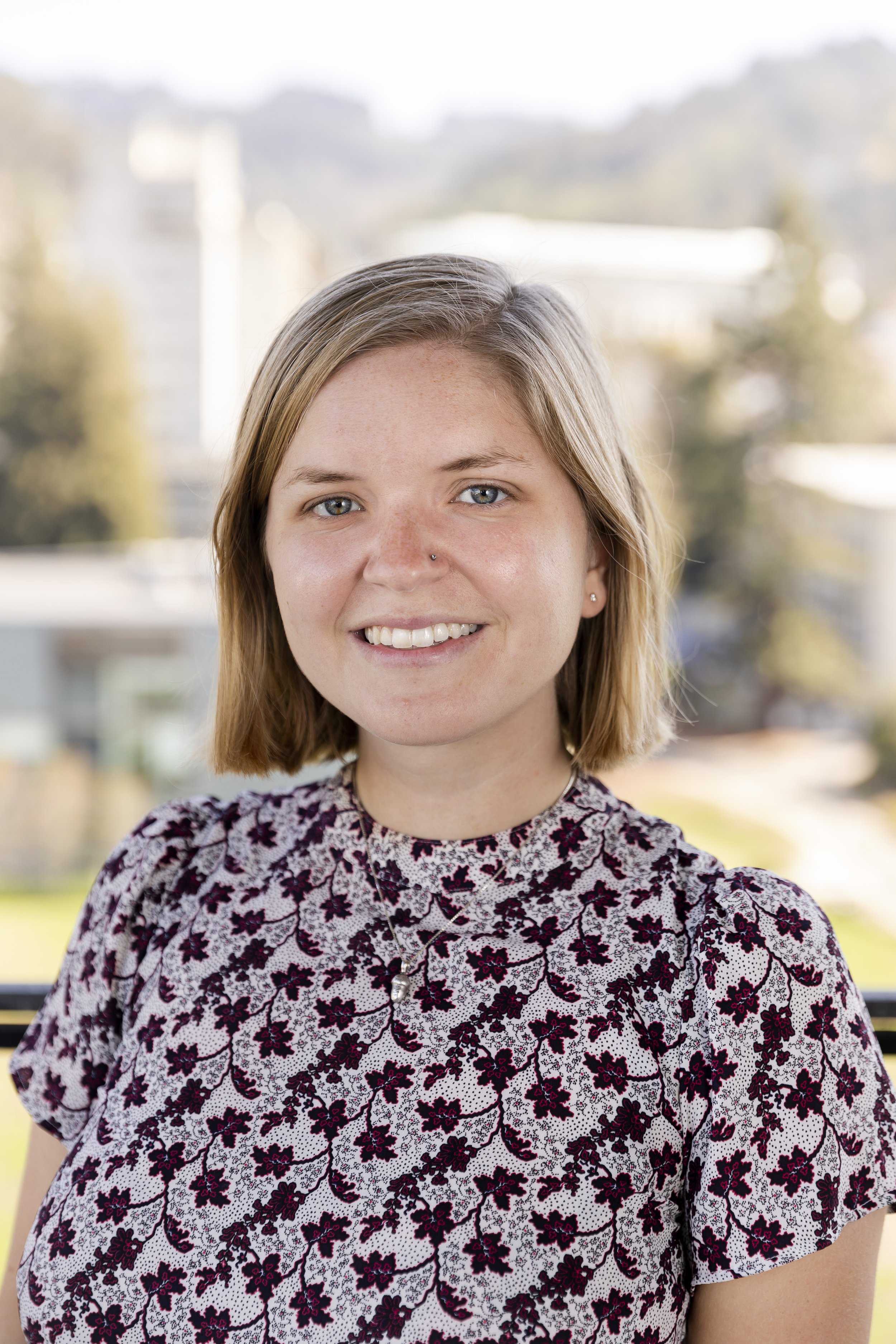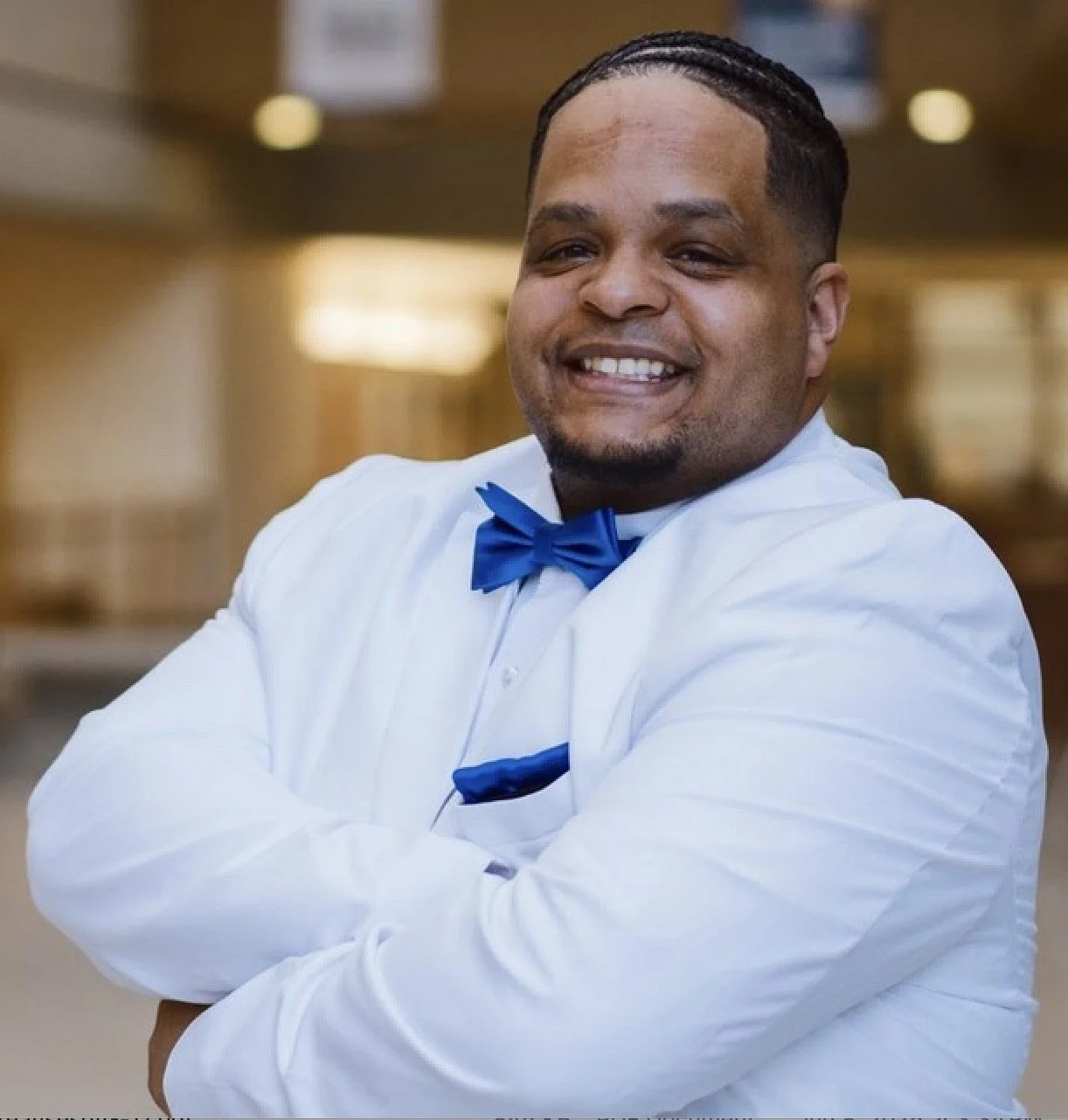Research Fellows
Eric Baran
Eric Baran is a Research Fellow at RIPIL, currently collaborating on the NSF-funded project, Networks of Influence and Support between War and Peace. Eric graduated from American University in December 2024 with a master’s in data science. His skills in this area have played an integral role in helping to finalize the three international aid network datasets stemming from the NSF project. At RIPIL, Eric’s work focuses on researching and evaluating programmatic methods for extracting data from standard or machine-readable documents, applying artificial intelligence (AI) and machine learning (ML) techniques, in particular large language models (LLMs), to develop, label and classify data, and network analyses techniques to quantify connections between organizations.
Follow his work here.
Jennie Barker
Jennie Barker is a Research Fellow with RIPIL and the Translating Research into Action Center. She is a PhD candidate in Political Science at the University of California-Berkeley, where she studies international relations and comparative politics, specifically democracy assistance and foreign policy. Jennie also serves as a consultant for the Impact Data and Evidence Aggregation Library, affiliated with the World Bank and the Center for Effective Global Action.
Prior to beginning her graduate studies, Jennie worked at the National Endowment for Democracy as a Research Associate with the Reagan-Fascell Democracy Fellows Program. She also completed a Fulbright English Teaching Assistantship in Hamburg, Germany, where she also worked with an integration program for refugee and immigrant students.
Follow her work here.
Grace Benson
Dr. Grace Benson is a Research Fellow at RIPIL and the Translating Research into Action Center. She holds a PhD and MPhil in International Relations from the School of International Service at American University, and a BA with honors in Public Policy and Ethics from Duke University. Informed by her background in resettlement and case management, her research explores forced displacement, humanitarian aid, and global comparative refugee policies.
Dr. Benson was awarded the Cosmos Club Foundation Scholars Prize for her development of a new global dataset and typology of resettlement services, which offers insights to strengthen international collaboration and improve policy.
Follow her work here.
Steven Bradford
Steven Bradford is a Research Fellow with RIPIL and the Translating Research into Action Center. He is a PhD Student in International Relations at American University’s School of International Service. He earned his BA in psychology with a minor in history from Texas State University. A professionally trained culinarian, Steven brings a unique perspective to international relations by integrating cultural experience and political inquiry.
His current doctoral research investigates the weaponization of food by authoritarian regimes, emphasizing how targeted attacks on food systems during the Syrian civil war have disrupted civilian life, eroded cultural identity, and reinforced state control. Using oral interviews, ethnographic analysis, social media discourse analysis, and archival research, he explores the nexus of food, conflict, and authoritarian resilience.
Follow his work here.
Cecilia Cavero-Sanchez
Cecilia Cavero-Sanchez is a Dual Title Ph.D. student in International Relations and Social Data Analytics at the Department of Political Science at Penn State. She is also a Project Manager for Networks of Influence and Support between War and Peace and Research Fellow at RIPIL. Her academic interests center around peacebuilding, dispute management, and post-conflict reconstruction. She graduated with a double B.A. in International Studies and Political Science at Carlos III University of Madrid. She also holds a Master of Research in International Relations from the University of Essex and a Master of Arts from Penn State.
Before her graduate studies, she was a writer for the Berkeley Review of International Conflict and Security, interned for the Speaker of the House Nancy Pelosi, and interned as an Intelligence Analyst at the Cyber Counter-Threat Intelligence team at Deloitte.
Follow her work here.
Willard Dodson
Willard Dodson is a public history master’s student at American University and a Research Fellow with the RIPIL-LPI Research-Policy-Practice Partnership. Her research focuses on the intersections of history, law, and political institutions in the United States, specifically how power, memory, and governance are constructed through archival records, legal frameworks, and public-facing narratives, with particular attention to the nineteenth and twentieth centuries.
Willard has conducted extensive archival and documentary research for academic and public audiences, including work with the White House Historical Association on presidential staff biographies and institutional history. She is especially interested in how historical research can inform contemporary policy conversations by clarifying institutional development, inequality, and long-term political change.
Follow her work here.
Madeline Faye Fleishman
Dr. Madeline Faye Fleishman is a Postdoctoral Research Associate at the National Security Data and Policy Institute at the University of Virginia. She received her PhD in Government and Politics at the University of Maryland, College Park. She is also a Project Manager for Networks of Influence and Support between War and Peace and Research Fellow at RIPIL. Her research primarily focuses on civil conflict, specifically cooperation in conflict management by international organizations.
She is currently working on different projects studying the networks of aid in various conflict contexts. Her work has appeared in Conflict Management and Peace Science, the Journal of Peace Research, and in the Monkey Cage Blog. She previously worked as an Adjunct Researcher at RAND Corporation.
Follow her work here.
Abrehet Gebremedhin
Abrehet Gebremedhin is a PhD Candidate in International Relations (Concentration in Development) at the School of International Service at American University. She is also a Research Fellow at RIPIL and a Co-Principal Investigator for Receiving or Rejecting Aid: The Influence of Populist Twitter Rhetoric in Aid-Recipient Countries. Her research focuses on the politics of education, foreign aid, mass mobilization, and Sub-Saharan Africa. She combines mixed methods, namely statistical analysis of cross-national panel data, historical archives, and elite interviews.
Prior to beginning her PhD, she spent many years in the international development field, specifically in monitoring and evaluation (M&E). She holds an MA and BA in International Development from the Josef Korbel School of International Studies at the University of Denver.
Follow her work here.
Chris Grady
Dr. Chris Grady is a Research Fellow at RIPIL and the Translating Research into Action Center. He is political scientist with substantive interests in behavioral science, international development, intergroup conflict, and taxation. Chris’ methodological expertise is in experimental design, survey research, and causal inference. He is generally interested in interventions to improve human well-being and in manifestations of commitment problems and collective action problems.
He was formerly Senior Metrics Advisor for USAID’s Bureau for Democracy, Rights, and Governance. Currently, he is a partner and board member for EI Research Partners. He also serves on the Board of Directors for Evidence in Governance and Politics (EGAP), and as a Research Affiliate for MIT GOV/LAB.
Follow his work here.
Matthew Levitas
Matthew Levitas is a Research Fellow with RIPIL and the Translating Research into Action Center. He is a PhD Student at American University’s School of Communication. He is a Research Fellow with RIPIL and the Translating Research into Action Center.
After a decade working at the Embassy of Japan’s Information and Culture Center, he came to AU to study the impact of Japanese culture on internet communications, from unmoderated image sharing to identity construction on social media. He has both public- and private-sector experience in strategic communications, and specifically in conveying knowledge between experts, stakeholders, and the public.
Follow his work here.
Ashley Scott
Ashley Scott is a Research Fellow with RIPIL and the Translating Research into Action Center. She is a PhD Student in the Department of Public Administration and Policy at American University. She is Research Fellow with RIPIL and the Translating Research into Action Center. Her research primarily focuses on education reform, with particular emphasis on school choice policies and the complex impacts of school closures. She is currently working on a project examining how these closures affect housing markets and socioeconomic inequality within affected communities. Her work investigates the intersection of education policy decisions and community outcomes.
Before coming to American University, Ashley earned her Masters in Public Administration and Master of Law from the University of Pennsylvania. While attending, she worked on a variety of qualitative studies and program evaluations, including and a comprehensive evaluation of the Philadelphia Water Department.
Follow her work here.
Fadima Tall
Fadima Tall is a Research Fellow with RIPIL and the Translating Research into Action Center. She is a PhD Student at American University’s School of International Service. Her research interests include post-colonial theory and Africa in the global order.
Prior to starting her PhD, Fadima graduated from Rollins College with a bachelor's in political science. She has previously worked as a Policy Research Associate at the U.S. End FGM/C Network, and as an intern at the Center for Strategic and International Studies Africa Program.
Follow her work here.












